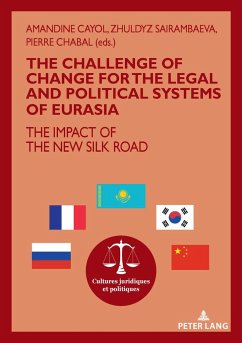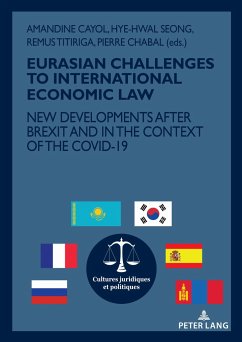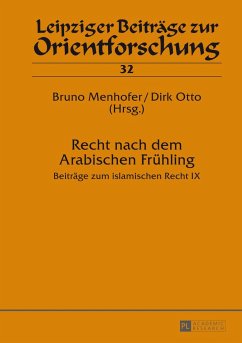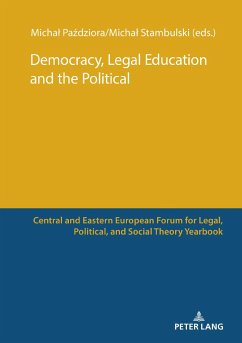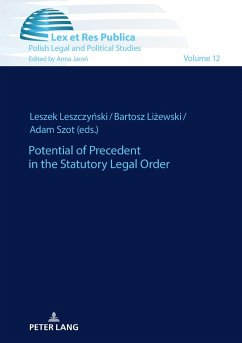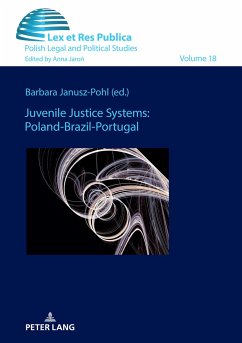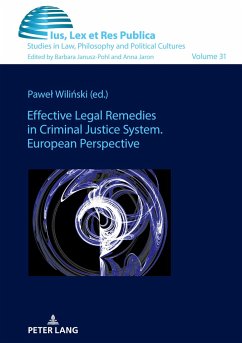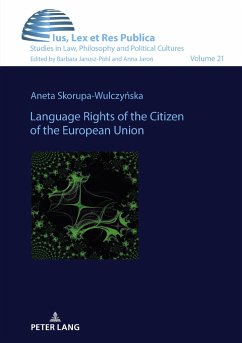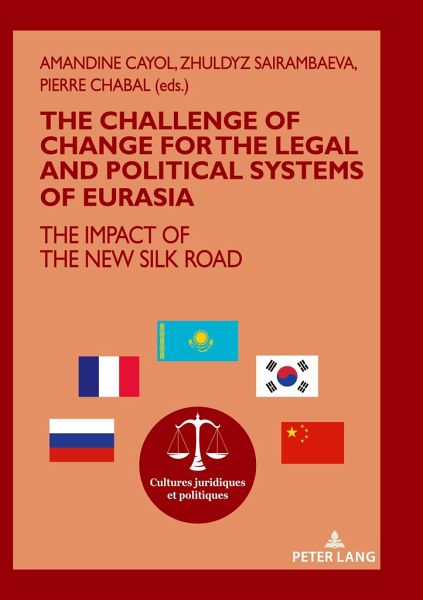
The challenge of change for the legal and political systems of Eurasia
The impact of the New Silk Road
Herausgegeben: Cayol, Amandine; Sairambaeva, Zhuldyz; Chabal, Pierre
Versandkostenfrei!
Versandfertig in 6-10 Tagen
115,90 €
inkl. MwSt.

PAYBACK Punkte
0 °P sammeln!
After reflecting On the European and Asian origins of legal and political systems: views from Korea, Kazakhstan and France (2018), the authors address in this book three intertwined issues. First, how systems that were established long ago are challenged by the necessity to adapt to change both in time, rapidly after the end of the cold war, and in space, across the continent of Eurasia and no longer 'simply' in their sub-region. Second, how these systems evolve both in a sui generis manner and adopt, each for itself, reforms at the national and sub-regional levels; and also in a reciprocal ma...
After reflecting On the European and Asian origins of legal and political systems: views from Korea, Kazakhstan and France (2018), the authors address in this book three intertwined issues. First, how systems that were established long ago are challenged by the necessity to adapt to change both in time, rapidly after the end of the cold war, and in space, across the continent of Eurasia and no longer 'simply' in their sub-region. Second, how these systems evolve both in a sui generis manner and adopt, each for itself, reforms at the national and sub-regional levels; and also in a reciprocal manner, learn and borrow from each other towards a 'regional legal order' in the making. Third, how extra-judicial evolutions, such as the logistical and commercial dynamics of the Belt and Road Initiative(s) appear more and more as the source or the cause of that very change affecting all Eurasian actors and interests. Examined elsewhere from a broad social sciences perspective, in the publication Cross-border exchanges: Eurasian perspectives on logistics and diplomacy (2019), these issues are here systematically analysed by a mix of conceptual and doctrinal perspectives and of textual, jurisprudential and positivist perspectives. Naturally, the challenge within the challenge to ascertain is whether a pan-regional or global legal 'model' would be capable of impacting change in general and legal change in particular as part of the 'post-cold-war 2:', where the political-military legacy is overcome by and yields to business concerns reaching beyond cautious legal constructions.





